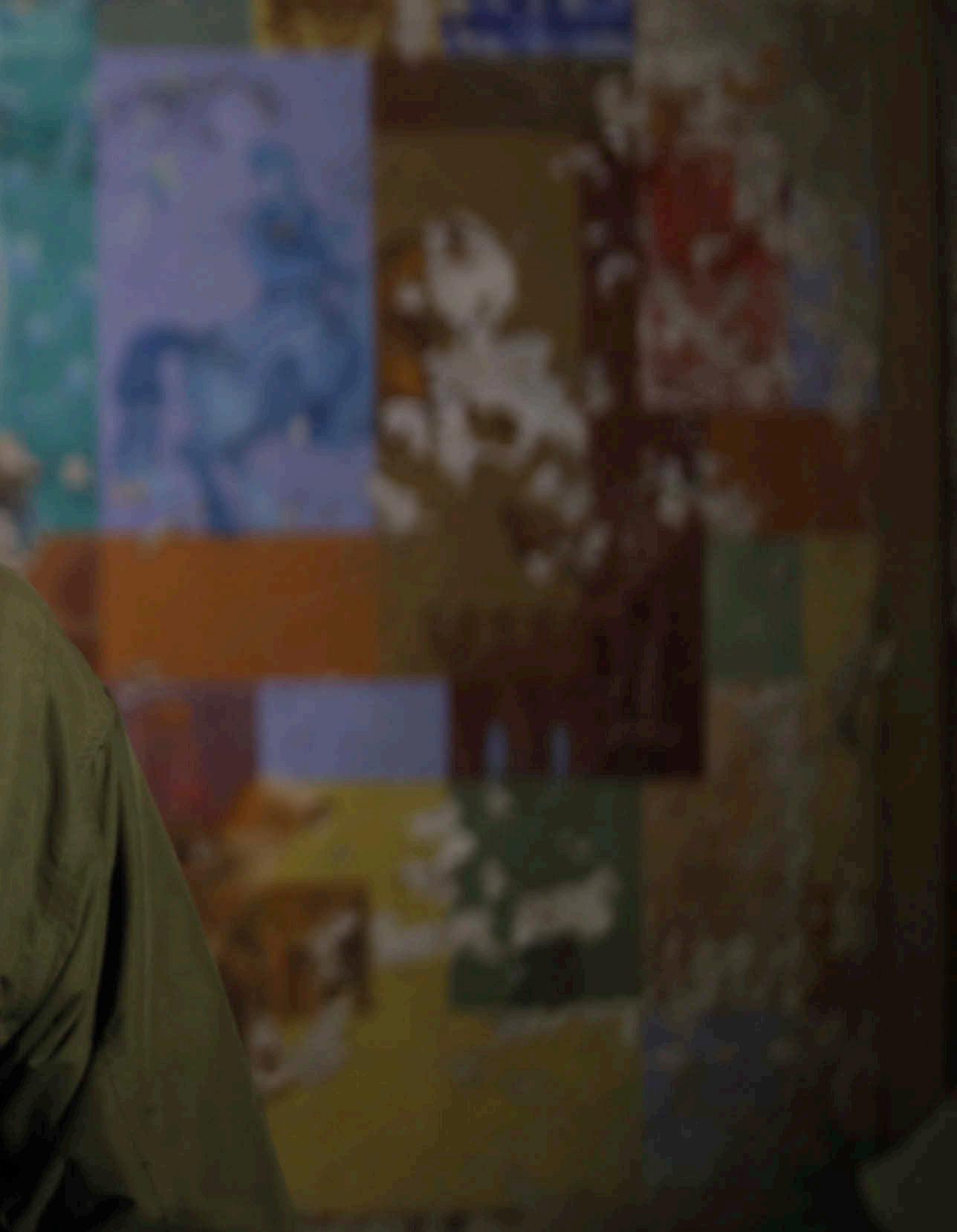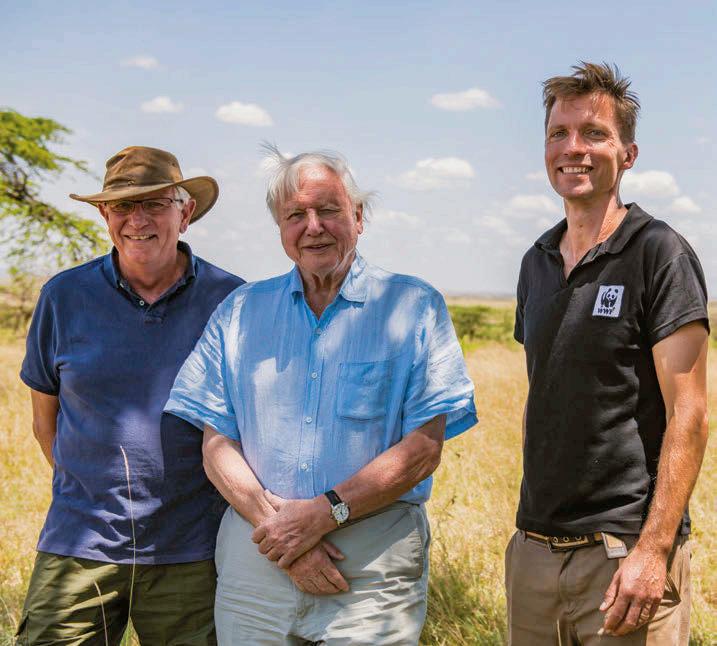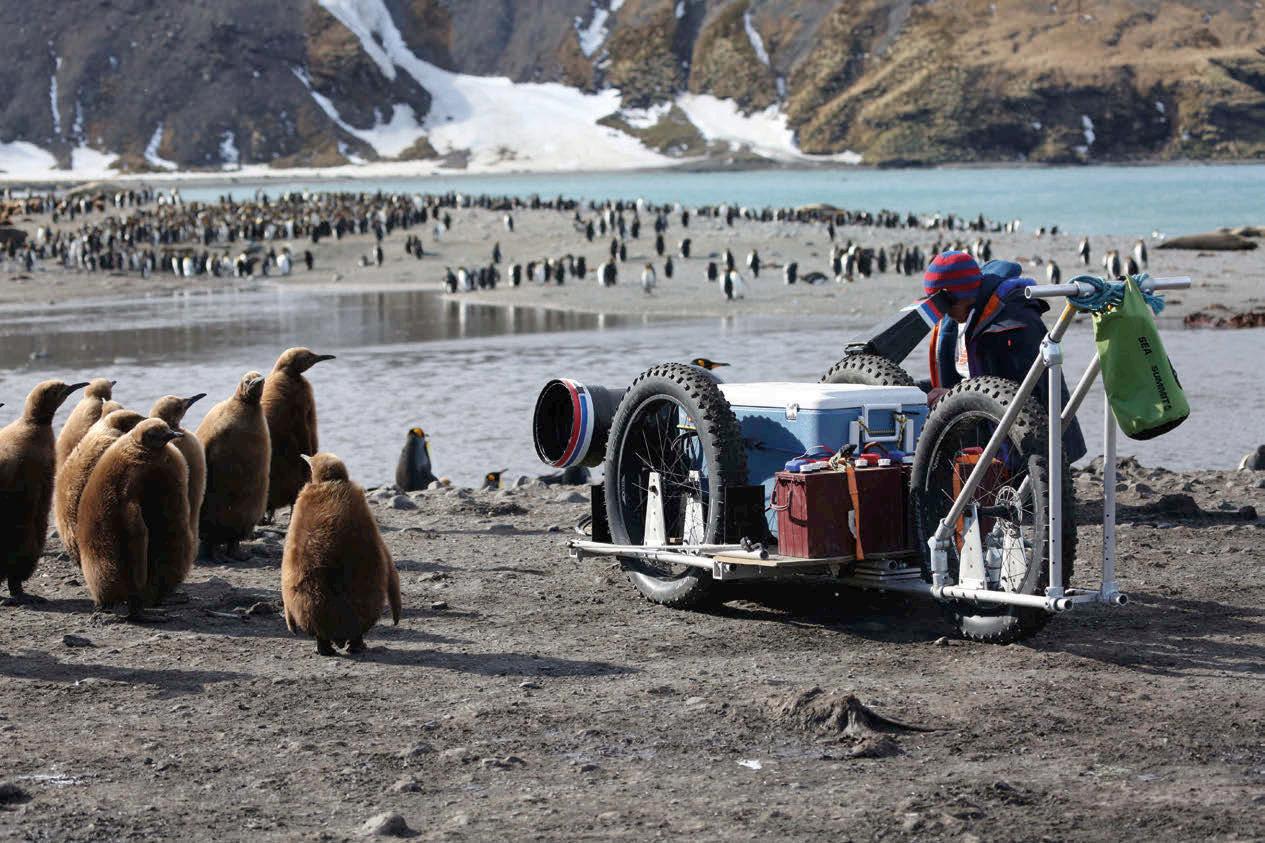
6 minute read
INTERVIEW: DAVID ATTENBOROUGH
“For the first time in human history, the stability of nature can no longer be taken for granted” - Sir David Attenborough
He’s devoted his whole career to celebrating the natural world; now, the life and times of our best loved wildlife presenter have been chronicled in a new film, David Attenborough: A Life on Our Planet. While featuring some of the most beguiling scenes the Earth has to offer, the documentary, made by Bristol’s Silverback Films, carries a stark message – we need to act now if we want to reverse the decline in its habitats. Ahead of the film’s global release, Mal Rogers met up with co-producer Keith Scholey
Advertisement

After graduating in zoology from Bristol University, Keith Scholey joined the BBC, eventually rising to the lofty position of Head of the Natural History Unit.
The job brought him into contact with David Attenborough, a presenter who’d been making films since the 1950s. During his spell as NHU head honcho, Keith would oversee the production of such landmark documentaries as The Blue Planet and The Life of Mammals.
Fast-forward a few decades to the founding of Silverback Films; a new joint enterprise set up by Keith and another former Head of Natural History at the BBC, Alastair Fothergill. ‘Silverback’ comes from the name given to older gorilla males; Keith and Alastair have long been intrigued by the world’s largest primate, and David Attenborough’s more than brief encounter with them on camera enthused them even further.
The new film, made in conjunction with the World Wildlife Fund, collates historic moments from David Attenborough’s long and distinguished television career. They’re intermeshed with his views on the current problems the natural world faces – as he put it in a previous series: “For the first time in human history, the stability of nature can no longer be taken for granted.”
Keith Scholey is clear that the content of wildlife films has changed, reflecting the Keith Scholey with Sir David and Colin Butfield in the Maasai Mara, Kenya; seriousness of the situation. photo Conor McDonnell / WWF-UK
“Up until the 1990s, if you’d talked Page 41: Our Planet: Frozen World about environmental dangers, you’d have been a voice in the wilderness. That has all changed.
“Today, there’s a lot more realism. Before, the focus of wildlife documentaries was on endangered spec ies, or endangered habitats. And they did a lot of good. The coral reefs were saved by TV. Jacques Cousteau’s films beginning in the 1940s brought this beautiful habitat to our screens. People wouldn’t even have known about corals if it hadn’t been for television; mountain gorillas and tigers, too.”
Tigers have lost well over 90 percent of their historic range and today their habitats are fragmented, making their struggle for survival acute – but with a chance of success. Keith believes that television has played a part. “Their plight was highlighted, and they were saved. There was huge effort put into their fight for survival. We knew they were an endangered species; they needed help, and people could grasp that.”
These – the tigers, the gorillas, the coral reef – were binary problems, according to Keith. Either they survived, or they didn’t. “People could understand that. And they identified with it. That’s different now. People are confused, and are not sure what they can do. It is all too easy for a sense of hopelessness to take hold.”
Don’t say it.
But there is a message of hope, according to Keith: “We know now jargon, he ‘came through the glass’. His style has been the template for what the issues are. If we choose to, we have everything in our power to nature documentaries ever since. reverse the situation. It’s quite straightforward. That is, if the political Keith says that Attenborough is a consummate broadcaster. “He has will is there. And that is the challenge facing us.” a fierce intellect and is unbelievably courageous; courageous in the field and in the boardroom. A lot of the backbone of modern television is A FORCE OF NATURE This is an often overlooked part of Attenborough’s CV. It took guts Sir David Attenborough, now 94, is a unique figure in world to launch quite a few of the programmes he commissioned: Civilisation broadcasting. He’s the only broadcaster ever to have won BAFTAs for by Kenneth Clark, Match of the Day, The Old Grey Whistle Test and Monty productions in black and white, colour, HD and 3D. Python’s Flying Circus. Most of these seem standard TV fare now, but back
Somehow, he manages to combine scientific detachment with caring in the 1960s each one, in its own way, was truly groundbreaking. tenderness. This, alongside his deep knowledge of the natural world and Had he stayed in BBC admin, Sir David Attenborough would his ability as a storyteller, has made him a global superstar. The internet, ultimately have ascended to the position of Director-General. But this naturally, has memes dedicated to him. was a step too far away from his preferred vocation: producing wildlife *THAT TENDER VOICE AGAIN* films. And it is these that have made him a global name. He invented the
David Attenborough: “The mother and cub are safe...” modern way we view wildlife on our screens, and if anyone can bring
Me: Don’t say it. home the message that “one planet is all we get,” it is this softly-spoken
Don’t say it. silverback of the broadcasting world.
down to his time as Controller of BBC2,” he says.
Don’t say it. PLANET MATTERS
David Attenborough: “...for now.” On 28 September the film David Attenborough: A Life On Our Planet will première across the globe. When first taken on by the BBC, David Attenborough had only ever Described as “Attenborough’s witness statement for the natural seen one television programme. Born in 1926, he is, in fact, about the world”, the film includes black and white footage from his early career, same age as television itself. However, he’d been absorbed by the study interspersed with contemporary film from a range of dramatic habitats. of nature from the age of ten. In 1936, along with his brother Richard, Sir David reflects upon both the defining moments of his career as a he attended a lecture on beaver conservation, and protecting the naturalist and the devastating environmental changes he has seen in Canadian wilderness. David was enthralled. just the course of his lifetime, but concludes with a message of hope.
After national service with the Royal Navy he joined the BBC. He’d And if that’s still not a sufficiently feelgood end to your evening, applied for his first job in 1950; he was turned down, but persevered, know this: after the film, you can watch a conversation between Sir and was eventually taken on. A wise move, on someone’s part; it soon David and his sole rival for national treasurehood, Sir Michael Palin. became apparent that the new boy knew how to shine on the newAll major Bristol cinemas will screen David Attenborough: A Life On fangled medium. Viewers felt he was talking personally to them – in TV Our Planet on Monday, 28 September.

SOPHIE LANFEAR ©
SOPHIE LANFEAR ©












